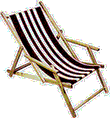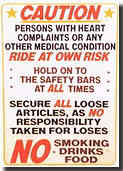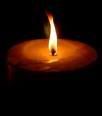Wednesday, August 26, 2009
Three
Senator Edward Kennedy. His absence from the health care debate this summer, one of Kennedy's signature concerns throughout his long career, was unfortunate. Ted always reminded me why & how I had become a liberal; mainly human rights, & the unfinished business of a progressive Democratic president I knew only from history books & old newsreels, Franklin Roosevelt.
Lefty: Gina's quietest cat, put to sleep this morning. Deaf or nearly so, Lefty always had serious health problems. When I'd arrive to open the cans, Lefty would wander into the kitchen, take any available dish, eat any flavor, then curl up somewhere & sleep. In the winter it was usually a cushion in front of a radiator, but she might be anywhere; on top of a cardboard box, on a dining room chair, I'd hear her snoring. Occasionally, she'd surprise me by playing with another cat. She was unobtrusive, gentle, with an undemanding temperament. I didn't try to force a relationship with her, just gave her a little scritch now & again, she always seemed content enough going her own way.
Ellie Greenwich: Co-composer of brilliant pop mini-dramas with awesome sing-a-along hooks, some of them quite silly; but, taken together, they spoke to & for suburban & working class white boomer teens of the early to mid-Sixties, often passionately. Many of Ellie's most enduring songs are like chants for jumping rope. My personal fav is probably "I Can Hear Music," swell versions by The Ronettes & The Beach Boys.
One of the reasons I loved British bands like The Animals & The Rolling Stones as a teenager was because they admired ( & recorded) the New York Brill Building pop of songwriters like Ellie Greenwich, but understood rock & roll needed to get back to its blues, rockabilly, & live band roots. We laugh now at "Leader of the Pack," & consider it a classic, but I disliked it when it was a hit; for me it was the epitome of packaged novelty pop, redeemed only by the Shangri-Las, who performed it like nonfiction. It was also Ellie's third #1 song in 1964, the Year of The Beatles, & the other two - "Chapel of Love" by the Dixie Cups & "Doo Wah Diddy" by Manfred Mann - were pretty damned good.
"If a nation expects to be ignorant and free, in a state of civilization, it expects what never was and never will be." Thomas Jefferson
Lefty: Gina's quietest cat, put to sleep this morning. Deaf or nearly so, Lefty always had serious health problems. When I'd arrive to open the cans, Lefty would wander into the kitchen, take any available dish, eat any flavor, then curl up somewhere & sleep. In the winter it was usually a cushion in front of a radiator, but she might be anywhere; on top of a cardboard box, on a dining room chair, I'd hear her snoring. Occasionally, she'd surprise me by playing with another cat. She was unobtrusive, gentle, with an undemanding temperament. I didn't try to force a relationship with her, just gave her a little scritch now & again, she always seemed content enough going her own way.
Ellie Greenwich: Co-composer of brilliant pop mini-dramas with awesome sing-a-along hooks, some of them quite silly; but, taken together, they spoke to & for suburban & working class white boomer teens of the early to mid-Sixties, often passionately. Many of Ellie's most enduring songs are like chants for jumping rope. My personal fav is probably "I Can Hear Music," swell versions by The Ronettes & The Beach Boys.
I can hear musicSet to a wonderful melody, write it in chalk on the sidewalk.
I can hear music
The sound of the city, baby, seems to disappear
I can hear music
Sweet sweet music
Whenever you touch me, baby
Whenever you're near
One of the reasons I loved British bands like The Animals & The Rolling Stones as a teenager was because they admired ( & recorded) the New York Brill Building pop of songwriters like Ellie Greenwich, but understood rock & roll needed to get back to its blues, rockabilly, & live band roots. We laugh now at "Leader of the Pack," & consider it a classic, but I disliked it when it was a hit; for me it was the epitome of packaged novelty pop, redeemed only by the Shangri-Las, who performed it like nonfiction. It was also Ellie's third #1 song in 1964, the Year of The Beatles, & the other two - "Chapel of Love" by the Dixie Cups & "Doo Wah Diddy" by Manfred Mann - were pretty damned good.














